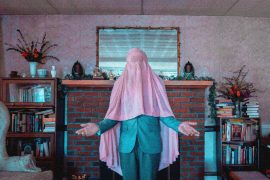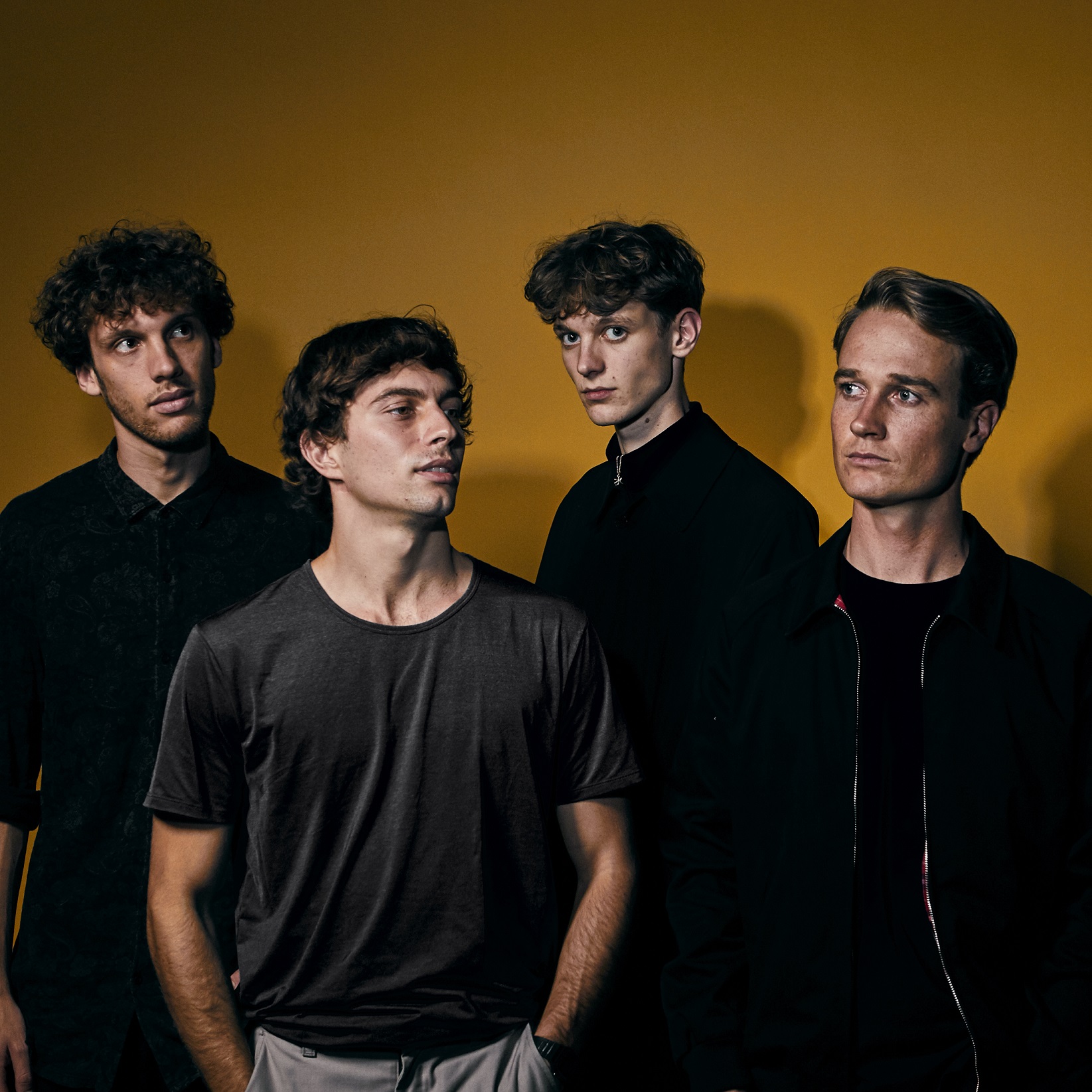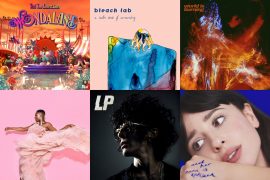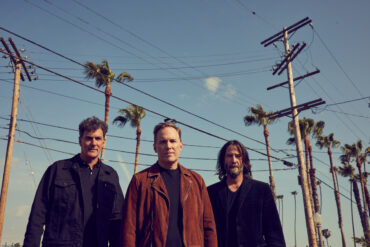Emily Wurramara’s humanity shines throughout her breathtaking, liberating sophomore album ‘NARA,’ an ambitious and unapologetically bold, soul-baring record that refuses to be not just one thing, but everything as the artist speaks her truth, spreads her wings, and soars.
Stream: “STFAFM” – Emily Wurramara ft. Arringarri
Every song on this album is a piece of my soul I am baring.
Gentle and dramatic, dreamy and grounded, Emily Wurramara’s sophomore album is, on the surface, a seamless blend of opposite forces.
Dig a little deeper, however, and NARA reveals itself to be the beautiful composite of an ambitious, uncompromising artist stepping into her truths and embracing those many sides that make up her multi-faceted identity. Wurramara is a daughter; a mother; a proud part of the Indigenous Warnindhilyagwa people (of Northern Australia); an active member of her community in lutruwita (Tasmania); a person struggling with her own mental health; and so much more. All these facets of Wurramara’s humanity shine through in NARA, a bold record that refuses to be not just one thing, but everything as Wurramara spreads her wings and soars.
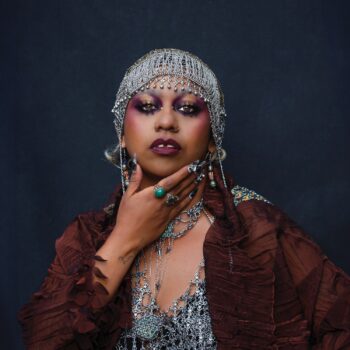
See the things they seem to grow
Beckoning you show me, oh
I can’t really tell the truth
Where is all of this to lead?
I don’t think that,
that it’s gonna change your mind
The things all I’m saying, my love
For once in my life I choose
There is nothing here I’ve proved
Can’t ya take the things I win?
Begging and beckoning, begging and beckoning
How was I supposed to know?
How can we ever grow?
There is all these things I’ve seen
What am I swallowing?
– “Midnight Blues,” Emily Wurramara
Released August 23, 2024 via ABC Music, NARA is a powerful, unapologetic statement of identity and intent from ARIA-nominated, multi-award-winning Australian singer/songwriter Emily Wurramara. Arriving six long years after her critically acclaimed debut album Milyakburra – which earned her accolades and well-deserved recognition from around the world Wurramara’s second full-length effort is an intimate, genre-spanning journey that puts listeners in her shoes, so that they may see the world through her eyes and feel the world as she does in her body.
Co-produced by the artist together with James Mangohig aka Kuya James (A.B. Original, Daniel Johns) at Boat Ramp Studios on Larrakia Country, NARA – which translates to “nothing” in her native Anindilyakwa language (more on that later) – holds nothing back, proving that you can, in fact, be multiple things all at once. Wurramara’s ever-enchanting songwriting is powerfully candid, honest, and achingly expressive, and she incorporates folk, pop, electronic, indie, rock, soul, and ambient elements into music that feels at once mystic and raw.
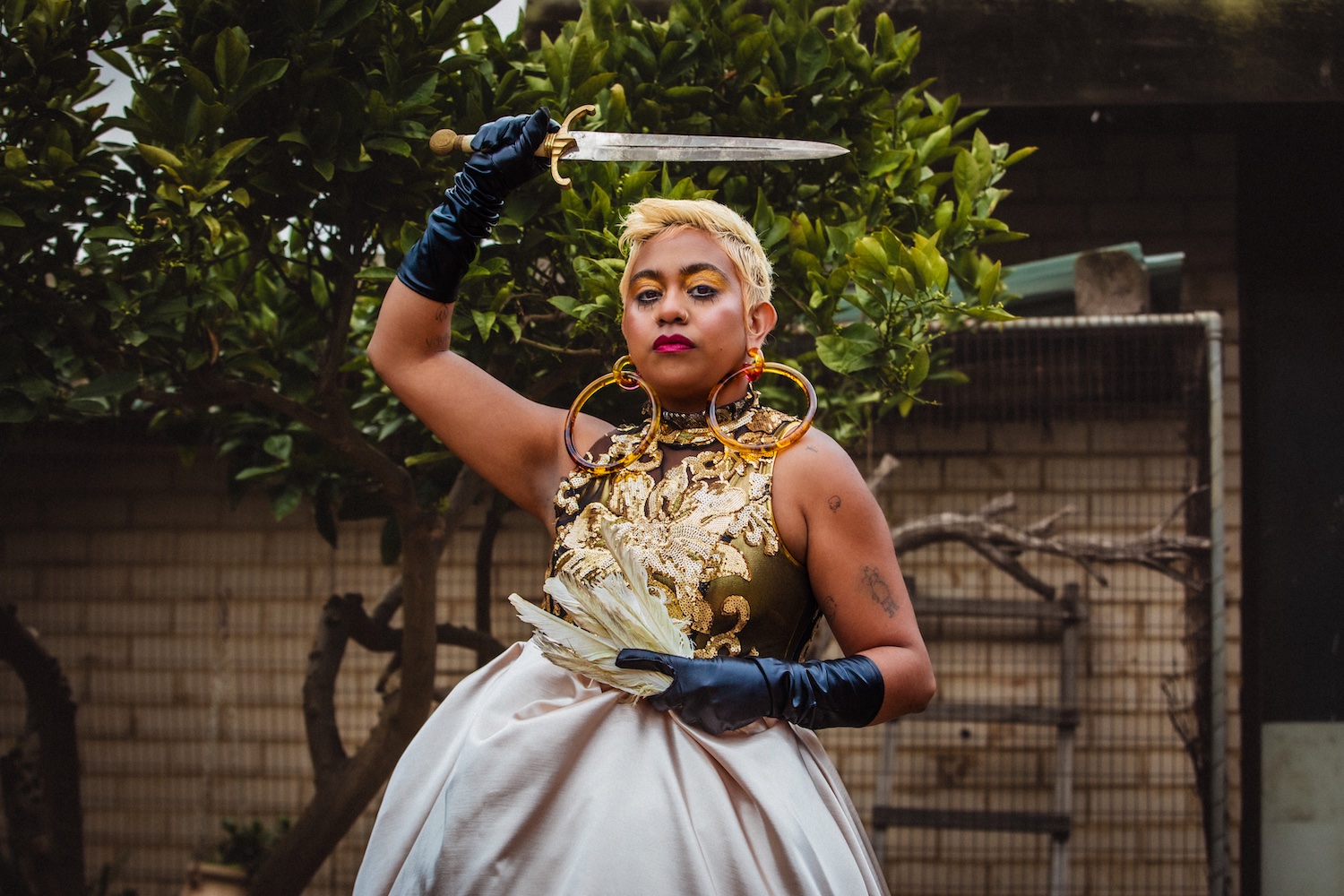
As is often the case with our life’s greatest works, this album has unlikely, unexpected roots, beginning for Wurramara at a time marred by tragedy and profound loss.
“The inspiration for this record happened when I had a house fire,” she tells Atwood Magazine. “It was one of those moments for me where I felt like a rebirth happened. New perspectives, and priorities, and my understanding of my music and myself became deeper. This big moment that happened in my life encouraged me to be fearless with my music. This record speaks on many themes, things that I used to be scared to talk about. NARA is my liberation and proudest project.”
“Initially [my vision] was to push out of my comfort zone and really show who I am as an artist, a musician, a storyteller but most of all, to show my spirit and soul,” she says. “I feel like I’ve done that and more. Bringing my community into this record was a number one goal – I find so many incredibly talented artists in this country to be underrated and overlooked because of the industry we are in. I wanted to show with this record that we CAN create a safe space for our art and stories. I don’t think [that vision] has changed; I just keep dreaming of more things to do, so I guess my visions have only gotten bigger.”
Joining Wurramara on this album are fellow artists Tasman Keith (“Lordy Lordy”), Velvet Trip’s Zeppelin Hamilton (“WWGBH”), Lisa Mitchell (“See Me There”), and Arringarri (“STFAFM”). Each artist gets their time to shine alongside Wurramara, as she channels her innermost, intimate experiences – of loss, of self-doubt, of heartache and hardship – into a communal forum of connection, catharsis, and understanding.
“Showing my skills as a producer, songwriter, and composer on this record was really at the forefront of what I wanted to do,” Wurramara notes. “I had initially wanted someone to produce the whole record for me, but every song on this album is a piece of my soul I am baring. Sonically it takes you through different portals, same as my debut album Milyakburra, but the thing that I believe ties NARA and Milyakburra together is again, the vulnerability, the storytelling, the feeling of community.”
“NARA is my rebirth, it is my ‘f*k around and find out’ era, and for people to see me as the woman I am.”
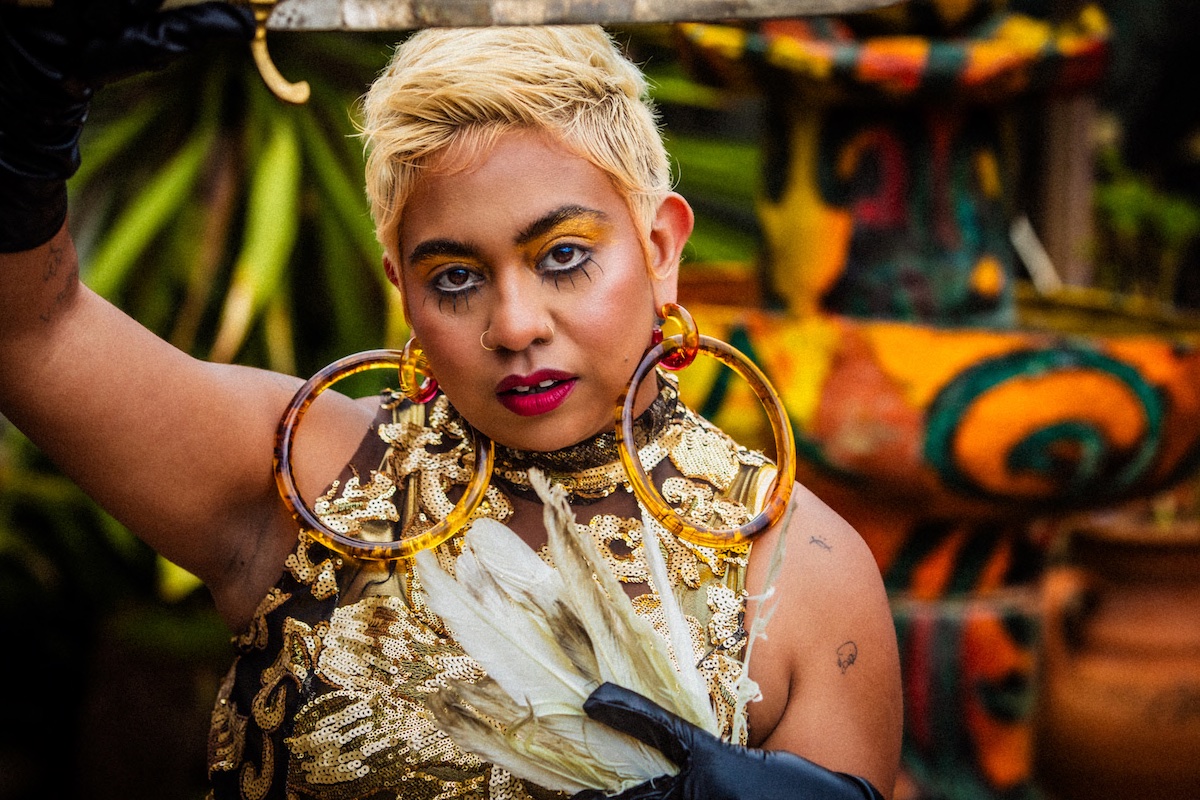
The album’s title is a spiritual message from Wurramara to herself and to all who need to hear it.
“‘Nara’ in my language Anindilyakwa means ‘Nothing.’ I wanted to name my album this because when I had nothing, I had everything at the same time. I truly believe in a balance when it comes to the journey, you need the lows, you need the highs, and you need to do nothing, it all connects and is interwoven with all we do.”
Highlights abound across NARA’s 50-minute runtime as Wurramara bares her soul for all to see, hear, and feel. Album opener “Midnight Blues,” released earlier this year as the album’s second single, sets the scene as a beautifully vulnerable, brutally honest blend of darkness and light: A cathartic eruption from her deepest depths that grows from the most tender sonic seedling into a dramatic explosion of raw passion and visceral pain.
“Wurramara was in a painful place when she brought her ‘Midnight Blues’ to life, and yet when we hear this song, we don’t just feel her darkness; we feel her light as well,” Atwood Magazine wrote in a review published earlier this year. “As her musical fever dream reaches its fierce crescendo, Wurramara is no longer numb, no longer aching, no longer drowning in sorrow; she rises and roars with the heat of the sun, shining a bold, bright energy out into the universe as if to say, ‘I’m here, and I’m not going anywhere: I’m sticking around.’ What began as a beacon of sorrows ends in a blaze of glory as Wurramara invites all to join in her euphoric revelry.”
“Magic Woman Dancing,” the album’s spellbinding lead single, remains that same mystical celebration of freedom that rang out upon the song’s initial release this past February. It’s a seductive spiritual release – a liberation of the mind, body, and soul – and as the album’s penultimate track (just before the cathartic, emotionally charged finale, “Passport”), it’s a space for listeners to let go, bask in their own inner light, and have a good time.
“This song pretty much paints a picture of a soul seeking freedom and unburdening herself from societal constraints,” Wurramara shared with Atwood earlier this year. “Through her silence, echoes of her strength and resilience resound. Though this woman has endured unimaginable pain, her outspoken nature and unwavering spirit shine through. People are captivated by her presence, following her every move to catch even a glimpse of her radiance.”
“This song invites whoever wants to listen to embrace their own uniqueness and find solace in the enchantment of self-discovery. It serves as a reminder that true magic lies within each individual, waiting to be released through the dance of self-expression.”
Additional standouts include the breathtakingly soulful “WWGBH,” the dynamic, exhilarating “Lordy, Lordy,” the seductively sweet and tender folk lullaby “Verandah,” the dreamy, sun-kissed pedal-steel love song “See Me There,” the infectiously funky groove “Boom Biddy Bye,” and the invigorating, inspiring mental health anthem “STFAFM” (whose catchy, singalong chorus, ‘I’m trying, why can’t you see, it’s really hard for me, so stay the f*k away from me,’ is sure to be a fan favorite and a highlight of her upcoming concerts).
“‘Verandah’ is a personal favorite,” Wurramara smiles. “I listen to it and I can smell the sea, I can taste my aunty damper, I can feel the heat on my skin. It’s a very special one for me because a very dear friend of mine, who is no longer physically present in this world, was with me for that journey and it kinda makes me feel bittersweet, a gentle reminder that life is short and we should soak in all the magical moments that we can with the people we love.”
As far as her lyrics are concerned, she cite a line in fourth track “DTMN” (Don’t Tell Me Nothing): “There’s a line where I say, ‘it’s a foggy night, don’t go whistling you’ll lure them here inside.’ It’s my favorite line because the mob who knows will get it, as part of some mob, whistling at night calls out to the bad spirits and it’s a nod to our cultural mythology. This is what DTMN is about; not everything is as it seems.”
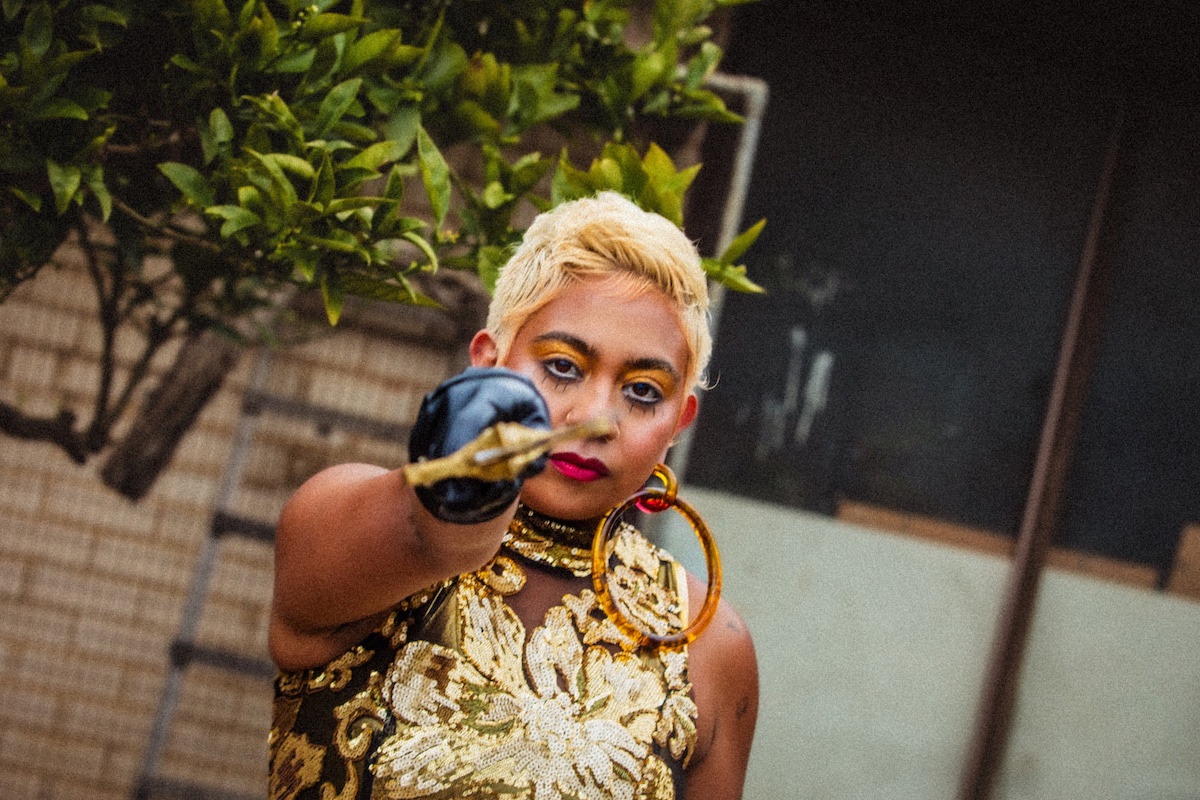
Wurramara ultimately hopes listeners take away a sense of empowerment from her songs, just as she herself has done over the past year.
“The root, the core, the source is so much deeper, painful yet liberating and that vulnerability is so powerful,” she shares. “Speaking your truth, it’s inspirational.”
“[I’ve taken away] that my truth is powerful, and I’ve managed to create a safe space with my community beside me. I’ve had to learn and unlearn a lot, truly I am just on this journey to being the best version I can be.”
Experience the full record via our below stream, and peek inside Emily Wurramara’s NARA with Atwood Magazine as she takes us track-by-track through the music and lyrics of her sophomore album!
— —
:: stream/purchase NARA here ::
:: connect with Emily Wurramara here ::
Stream: ‘NARA’ – Emily Wurramara
:: Inside NARA ::
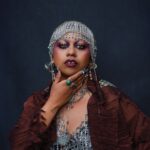
— —
Midnight Blues
“Midnight Blues” is a song that was inspired from this encounter at Woodford Folk Festival with a man in colourful clothes and an octopus hat. This is my most vulnerable song on this album, it touches on all these themes and topics that a lot of people would shy away from talking about. I personally believe being in the uncomfortable leads to growth, to be the best version of you that you can be for you. Midnight Blues is my “I forgive you and I love you” affirmation.
WWGBH ft. Zeppelin Hamilton
I wrote “WWGBH” (When We Go Back Home) here in Lutruwita/Tasmania when I had to leave my family to go on tour again. This song has a feeling of longing and yearning attached to it. I’m so very grateful that Zeppelin Hamilton (of Velvet Trip) wanted to sing and play on it – the magic we cooked up writing this was insane. I remember we sat down from night to morning while working on it. It makes me wanna cry every time we sing it together.
It’s You
“It’s You” is a song about passion and loving deeply. This one was such a fun song to record. I really got sexy with it and R&B is a genre I’ve always wanted to do from the get go, It’s You just makes me feel all the yummy good things when it comes to being in love.
DTMN
“DTMN” is my fuck around and find out song. It’s about the Indigenous mythology and how there are things we cannot see who influence in big ways, whether we’re consciously aware of it or not. The moon and sun have been here since the beginning of time and you cannot lie to them, they’ve seen it all.
FRIEND
“Friend” is cut-throat – there aren’t many people I would ever say “I wish I never called you friend” to. I wrote this one when my best friend broke my heart. It hurt so much because I was always there for them always. The song itself takes you on a sonic journey of what a broken down friendship would sound like.
STFAFM ft. Arringarri
“STFAFM” is my mental health anthem, I wrote this on my ancestral home of “Milyakburra” – Bickerton Island. It’s something I wish I had the courage to say earlier to a lot of people. Instead of doing that I just wrote this song. STFAFM is a reminder that it’s okay to say no and it’s okay to take a break. It’s also a song that makes me feel fired up, like I’m ready to go fuck it up now and no one’s gonna stop me.
Verandah
“Verandah” is my lullaby for moments on country, this song was inspired by a road trip I took when I was 18 from Meanjin/Brisbane to the Northern Territory. All the things I’m singing about in Verandah are about memories with dear friends along the way and being on my country.
Lordy Lordy ft. Tasman Keith
“Lordy Lordy” is a “club protest song” – it has so many hidden meanings and layers behind it. Being an Aboriginal Woman in this country can be challenging, the political discussions, gatekeeping, silent oppression – it’s very stale and outdated behaviour. Lordy Lordy is a call for people to ask themselves, what are you doing to uplift our voices and our issues in this country? Being silent about something can also be seen as violent.
Boom Biddy Bye
“Boom Biddy Bye” is a song about pretty much trying to be very consistent with people, and how people can sometimes be unaware of what they’re actually doing and internally that creates a space of confusion. It’s pretty much like – I don’t need this, I don’t want to deal with it, my energy and my time is way too precious for this shit. I think the energy anger emits can sometimes bring more clarity, because you’re seeing it for what it is now. You’re no longer blinded to your expectation of that person or that situation.
See Me There ft. Lisa Mitchell
“See Me There” is a love song I wrote for my deadly man, he always makes me feel seen, heard, love and respected. I think for the first time I’m in a relationship I feel adored, and this song is about that – how we are so worth being seen for who we are and to not allow others to change your beauty, just like nature, we are all so uniquely beautiful. I am so honoured to have Lisa Mitchell feature on this song, I’m a huge fan of her work and her storytelling.
Magic Woman Dancing
“Magic Woman Dancing” is about inspiring others by living through the freedom of yourself. It tells a story about liberation and going against society’s expectations. This was in my “unknown” basket when my co producer Kuya James and I were workshopping the songs – and I’m so glad we took it out of that basket.
Passport
Probably the most HARDEST song I’ve recorded on this album. “Passport” is such a deeply personal song, the lyrics, the way it’s arranged – everything was inspired by heartbreak. I remember writing this song and sobbing for hours after, it’s definitely one that gives me some release.
— —
:: stream/purchase NARA here ::
:: connect with Emily Wurramara here ::
— — — —

Connect to Emily Wurramara on
Facebook, Twitter, TikTok, Instagram
Discover new music on Atwood Magazine
© Claudia Sangiorgi Dalimore
NARA
an album by Emily Wurramara

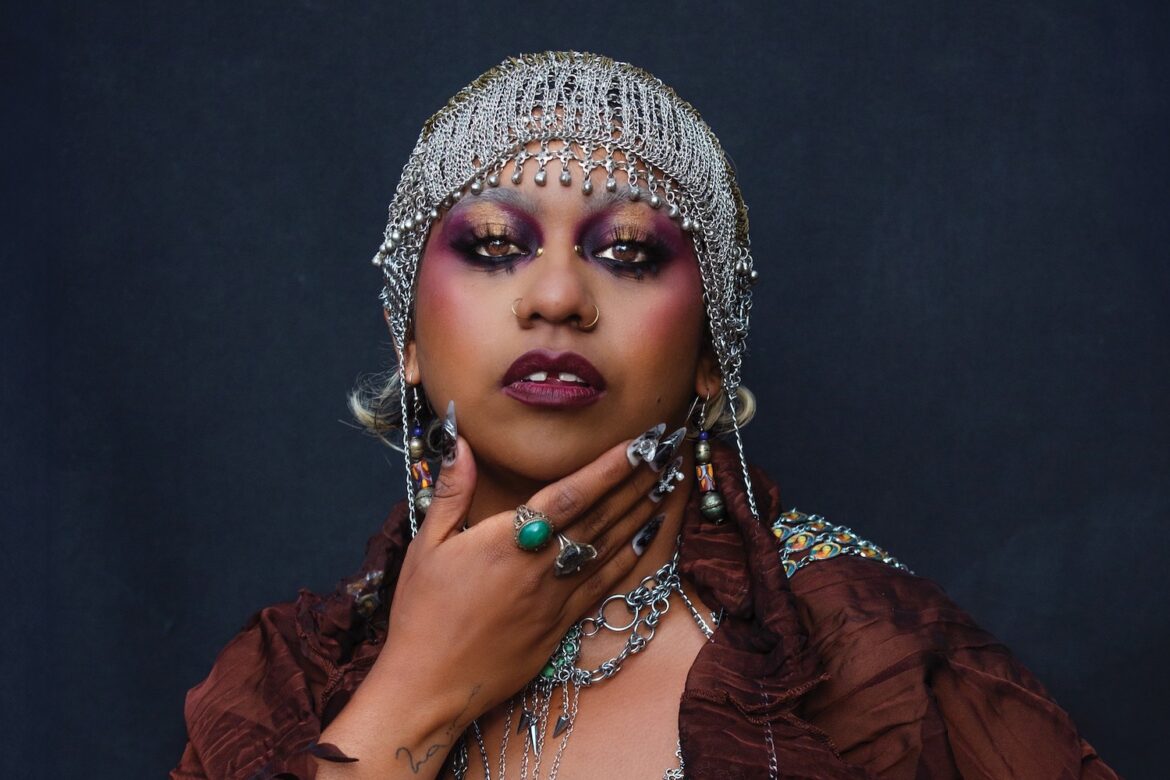
 © Claudia Sangiorgi Dalimore
© Claudia Sangiorgi Dalimore


